The launch of the new campaign - by ENEC Managing Director and CEO Mohamed Al Hammadi, World Nuclear Association Director General Sama Bilbao y León, UK Minister for Nuclear and Networks Andrew Bowie and nuclear advocate and Miss America Grace Stanke - took place on the first morning of the World Nuclear Symposium 2023, attended by 700 people from across the global industry.
The aim of the campaign is to ensure that nuclear energy’s potential "is fully realised in facilitating the decarbonisation of global energy systems by promoting the value of nuclear energy and removing barriers to its growth", especially ahead of COP28, which takes place in the United Arab Emirates later this year.
It says that recent data modelling suggest nuclear energy capacity needs to at least triple by 2050 to achieve climate targets, which would require about 40 GW of new nuclear per year, about six times the deployment rate of the past decade.
At the launch, Al Hammadi said that net-zero “will not be possible without nuclear energy” and said that as well as bringing clean energy day and night, its ability to decarbonise heavy industry and transport meant there should be even greater collaboration to ensure its growth. "Talking is great, but delivering is even greater," he added.
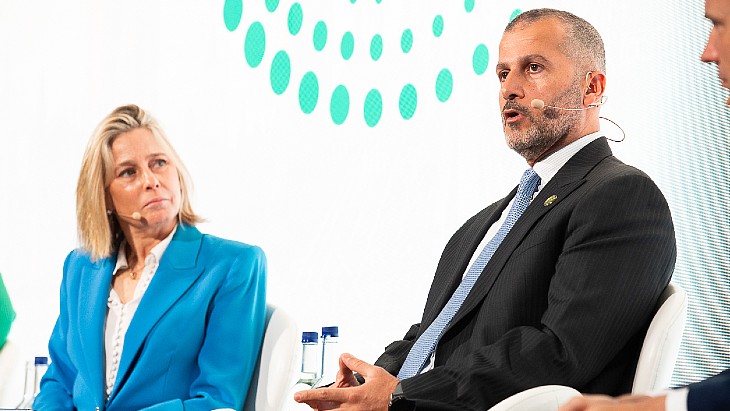 Al Hammadi and Bilbao y León discussed the aims of the initiative (Image: World Nuclear Association)
Al Hammadi and Bilbao y León discussed the aims of the initiative (Image: World Nuclear Association)
Bilbao y León said: "Scaling up nuclear energy capacity to at least three times its current size requires political will from energy leaders, along with mobilising quickly and efficiently the required financing. We have no time to lose … through Net Zero Nuclear, we hope to facilitate the action our industry needs to grow."
Grace Stanke, a nuclear engineering student who is spending her year as Miss America raising awareness about nuclear power and zero-carbon energy sources, said many younger people had got involved in nuclear because of climate change, and said that extreme weather events meant climate change was a “pressing issue that we grew up with - we're not afraid to take action, because if we don't take action today, we won't have a tomorrow" adding that it was "important to have this conversation at the international level … let's start at the top because if it's not happening everywhere, on this planet, what's the point?"
The UK Department for Energy Security and Net Zero announced at the launch that it would be joining Net Zero Nuclear as the inaugural government partner, with Bowie echoing the point that there could be “no net zero without nuclear”. He highlighted the UK’s plans for new nuclear capacity - large plants and small modular reactors - and stressed the need for international collaboration.
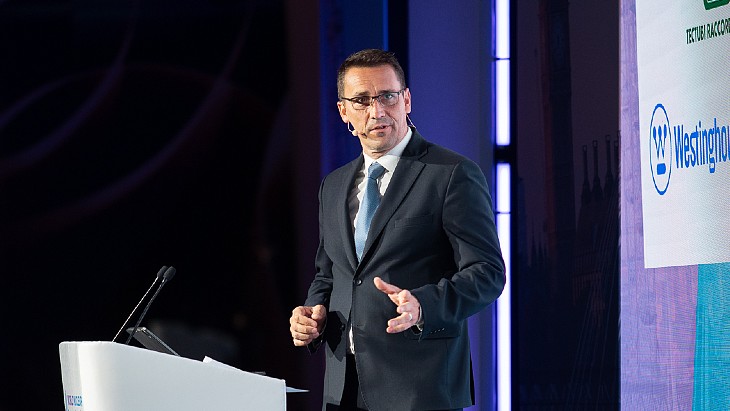 Zronek highlighted positive developments taking place (Image: World Nuclear Association)
Zronek highlighted positive developments taking place (Image: World Nuclear Association)
Earlier, opening the annual conference, World Nuclear Association chairman Bohdan Zronek, director of ČEZ's nuclear energy division, and Bilbao y León outlined the key developments in the nuclear energy sector over the past year and also the developing plans for new nuclear in existing, and newcomer, countries and also highlighted a series of examples of collaboration taking place across the industry.
They were also joined for the morning session, on Nuclear for Global Growth and Prosperity, by International Atomic Energy Agency (IAEA) Director General Rafael Mariano Grossi, who gave his backing to the Net Zero Nuclear campaign and said it was "clear we're at a key moment for nuclear" with lifetime extensions of existing plants as well as the development of small modular reactors and increasing interest in nuclear from newcomer countries.
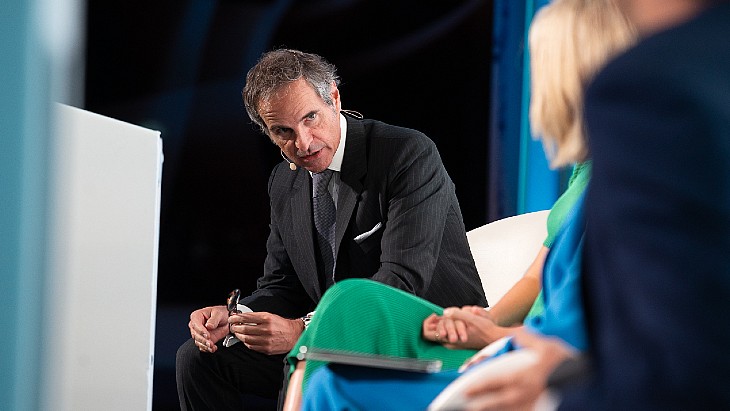 The IAEA's Grossi makes a point (Image: World Nuclear Association)
The IAEA's Grossi makes a point (Image: World Nuclear Association)
He said that the IAEA was helping those countries along that road, and was also pursuing initiatives to help harmonisation, which would have broader benefits for faster rollout of future nuclear capacity. He said that "just as technology and industry adapts", the regulatory process should adapt as well.
Grossi also stressed that, above all, the priority remained the safety and security of the nuclear power plants in Ukraine, saying that any attack on them, or anything going wrong inside them, would mean that the "visions, plans, ideas and aspirations" being discussed "will be much more difficult", in terms of persuading people and politicians to back nuclear energy.
US Congressman Chuck Fleischmann said that it was critically important for future nuclear "that we who support new nuclear get the information out to our respective constituencies that new nuclear is safe". He also highlighted the collaboration taking place between the USA and Canada which has led to them learning and gaining from working together.
Joo Ho Whang, president and CEO of Korea Hydro & Nuclear Power, outlined the current and planned positive prospects for new nuclear in South Korea.
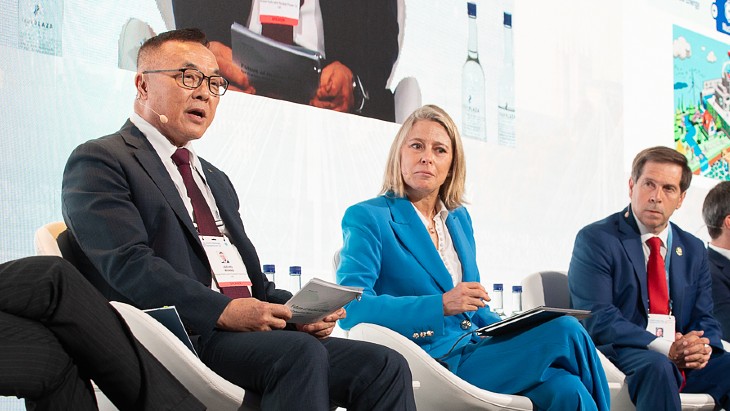 Whang, left, Bilbao y León and Fleischmann (Image: World Nuclear Association)
Whang, left, Bilbao y León and Fleischmann (Image: World Nuclear Association)
He also stressed the importance of supply chains in the nuclear sector, giving the example that the number of nuclear grade cement producers had fallen from three to one under the previous South Korean government, which had a nuclear phase-out policy. He said that with new projects planned, it was important, nationally and internationally, to have a strong supply chain.

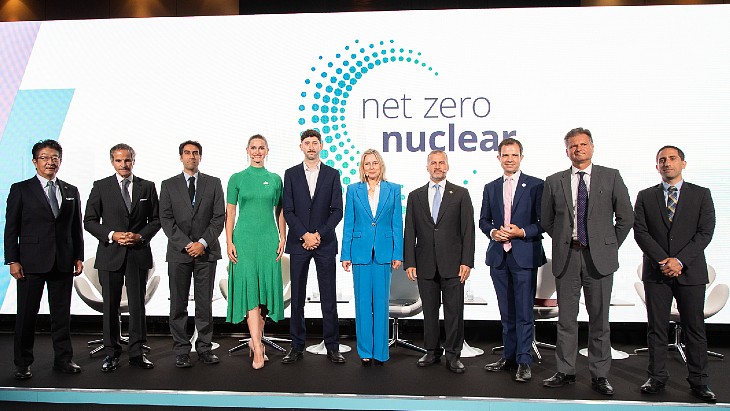





_55401.png)
_23009.jpg)






